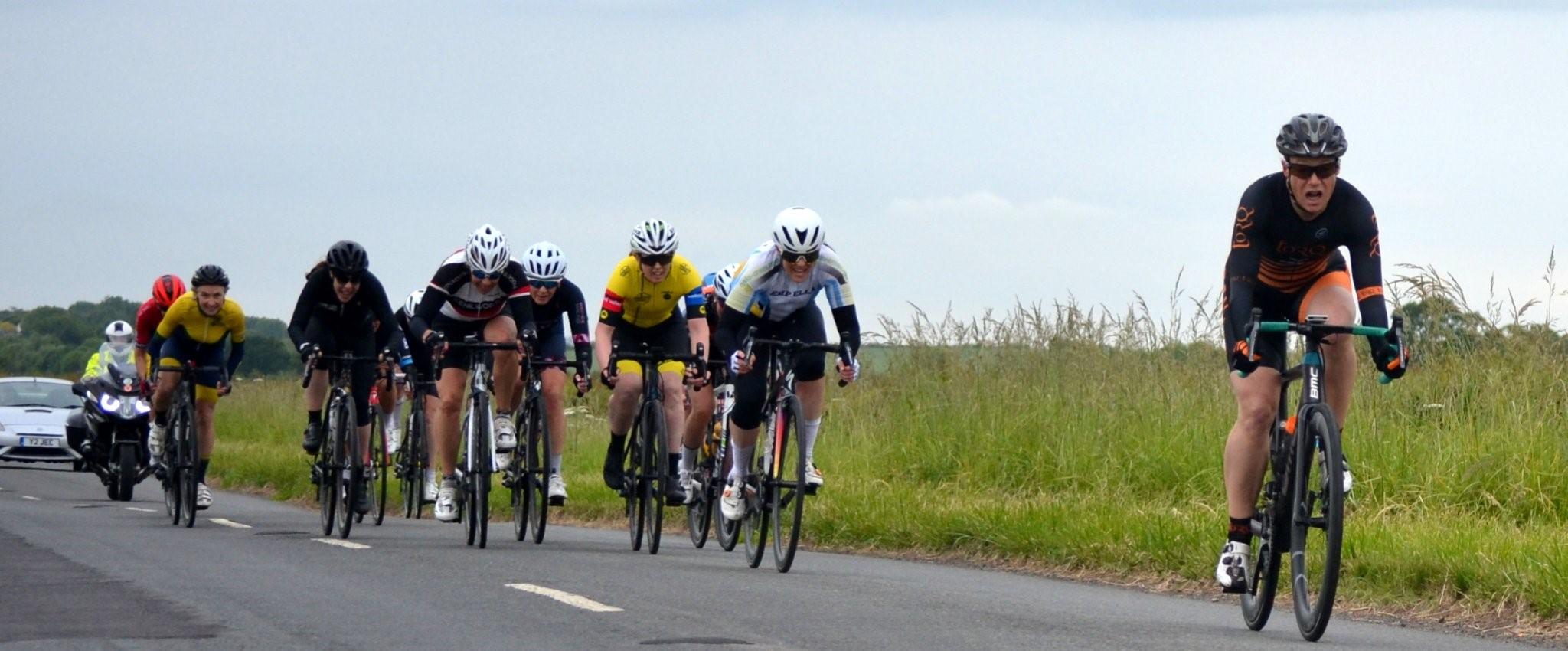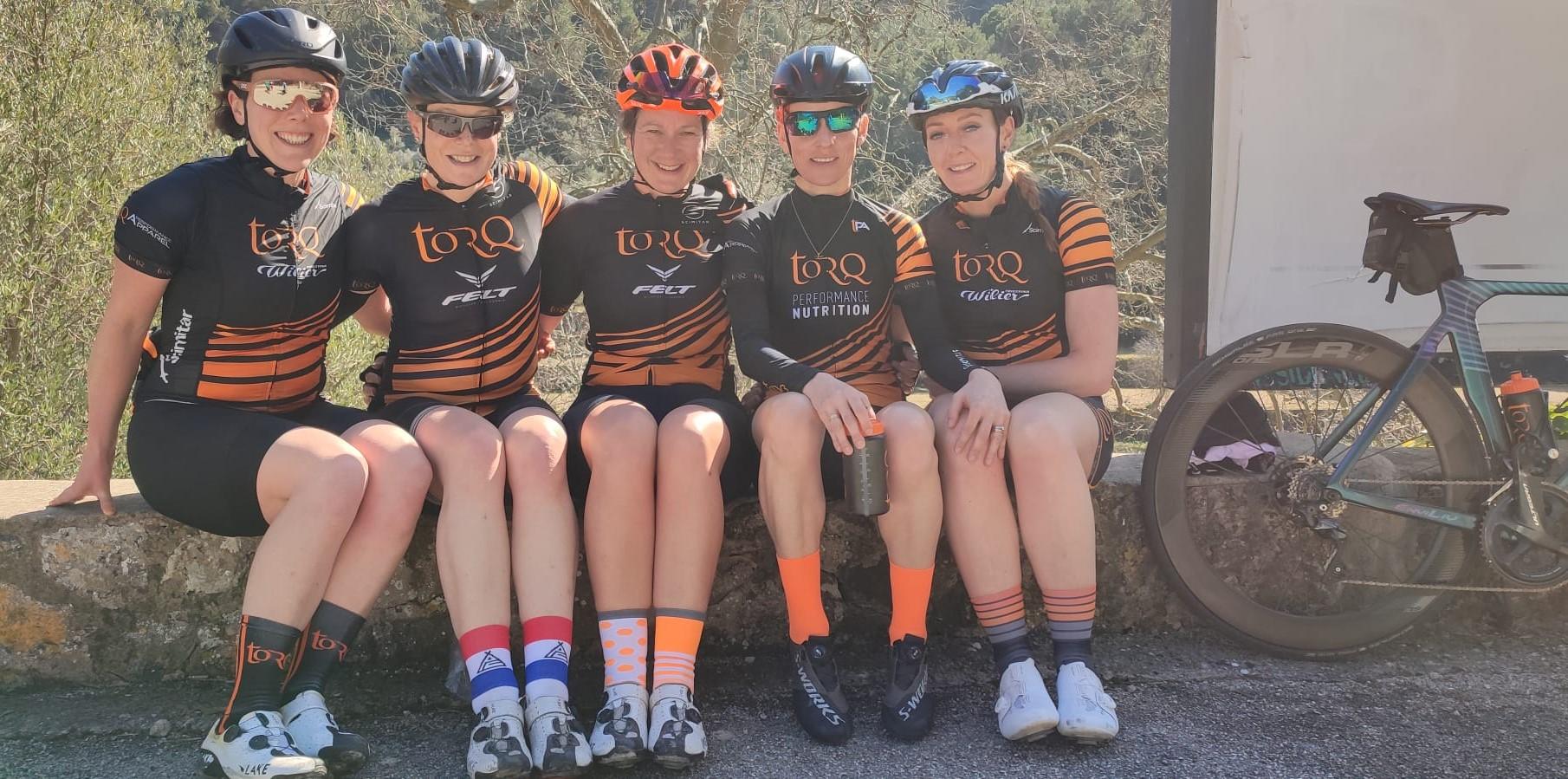HRV and menopause
Looking back, I can remember a 50+ track cyclist telling me “It all changes and becomes so much more difficult after 50”. I did not think too much on it at the time, I was in my early 40’s and still improving (I did not start competing until I was 36) so I could not begin to appreciate the wisdom she was sharing.
.
Jan storming to a win in the sprint at BMCR Road Race Championships.

Photo credit to Stuart Day
Tracking HRV
Just when I thought I had a handle on my Heart Rate Variability (HRV) and the stressors which affect me personally, I found peri-menopause and now menopause have thrown a hand grenade into all of that thinking and it is time to start over again.
Using ithlete I can measure the variability in the timing of my heart beats and that gives me an insight to the parasympathetic (rest-and-digest) and sympathetic (fight-or-flight) elements of the autonomic nervous system. A high HRV number tells me I am rested and ready to go, while a low reading suggests my system is stressed and warns me to proceed with caution.
With ithlete Pro, I track my HRV daily to understand recovery and the impact of work, travel and sleep as well as what I eat and drink on my ability to handle training. After more than a decade I now have a good understanding of what the numbers tell me and a proper respect for the red warnings which occasionally tell me I am over-stressed or perhaps getting ill. ithlete also helps me understand when and how gently to get back into training after illness. If I am in doubt I check in with my coach, Steve Cronshaw and we will make a decision together.
“It is a system which works, I have lost fewer days to illness than I did before I used ithlete”.

Team TORQ, from left to right: Maddy, Jan, Mel, Georgie, Lou
Something has changed
Recently I have become aware that something has slowly being changing. So slowly in fact that it is difficult to fully understand and it is only now, looking back that I can see my HRV numbers have dropped steadily over the last couple of years. Five years ago a reading in the mid-80’s was a sign that all was good, even if my legs felt sore from training, I could push on with confidence knowing that while I might be over-reaching, I was not in danger of over-training. These days I am happy for a reading in the mid-70’s and I can only put this down to menopause.
That much is – for the experts at ithlete anyway – simple enough but female hormones are unbelievably complex and subject to change at different life stages as Dr Stacey Sims explains below.
“Estrogen tends to increase vagal tone (ie the ability of your ventral vagal nerve to regulate your heartbeat), which is what devices measure to give you HRV. Progesterone, though “calming” in the brain, has the opposite effect on the vagal nerve and overrides estrogen’s effect on increasing vagal tone… In perimenopausal women, the hormone ratios are completely different and in postmenopausal women, they are flatlined, so the hormonal influences on the vagal nerve are altered. In both cases, you end up with more fight-or-flight activity and less rest-and-digest activity, especially after menopause.”
The bottom line is that most women will, like me, see their HRV numbers decrease as they transition from pre to peri and then onto menopause, and over time they will establish a new baseline. Of course, the transition is entirely individual and even if it weren’t, there is currently very limited research into this area. My experience tells me this is a time to get in touch with how I feel, commit to completing the subjective measures in ithlete Pro and to monitoring sleep quality too.
It is a difficult and confusing time for many women, with mental resilience challenged and so many physiological changes taking place. There is however some comfort in knowing that what I am seeing is normal and I feel a follow-up blog coming up on the subject of HRT and HRV… it might just be a game changer for me!
Add context to your data with ithlete Pro
To track your HRV trends over time, and record the all important wellness context. try ithlete Pro.
You can sign up for a no-obligation 28-day trial below – all you need enter is your email address.
You might also enjoy...
HRV, Athlete Performance and the Menstrual Cycle
Our guest blog on the Training Peaks site looks at how the hormonal changes that female athletes experience affect their mental as well as physical health and how HRV can provide valuable insight.

I am 74 years old. Age group world champion Olympic Distance triathlon 2014. I have been using ithlete for the past five years. My readings are generally mid to high 90’s, occasionally up to 106 and rarely below mid 80’s. Mainly green rarely red. These numbers seem strangely high considering my age. Do you have any thoughts?
Hi Jane,
Congratulations on a great endurance athletics career! We do expect dedicated athletes to be above the average HRV score, and clearly you have an exceptional physiology. You might find this post on HRV and Longevity interesting, which shows the ‘normal’ HRV ranges by age. There will always be exceptions and this can only be looked upon as a guide.
Best,
Laura
I’d love to know if you personally have found any relation between HRV and perimenopausal symptoms? I’m almost 52, late perimenopausal, running for 14 years. My HRV isn’t terribly high – averages about 30 – but with my Garmin tracking and my symptom tracking I’ve noticed my night sweats kick into gear when my HRV goes lower than my baseline. Just now I lined up the five days I had lower HRV back in May with a random few days of night sweats and hot flashes. This was midway through a 6-month cycle. I started my period a couple weeks ago and a few days in my night sweats started up and my HRV went down. Had a lot of stressful things going on and they’re calming back down…now my HRV is trending back up and last night – no night sweats.
This process is wild, especially for a data nerd like me!